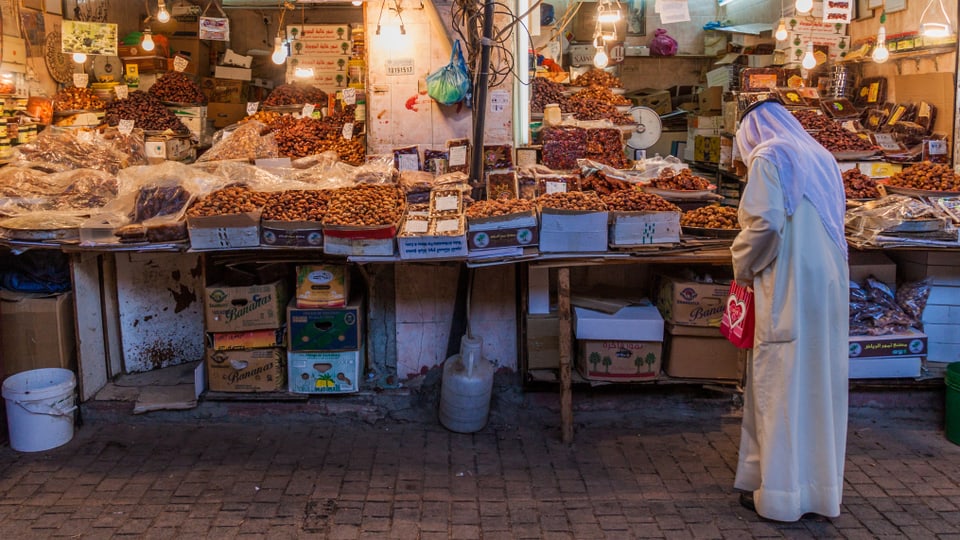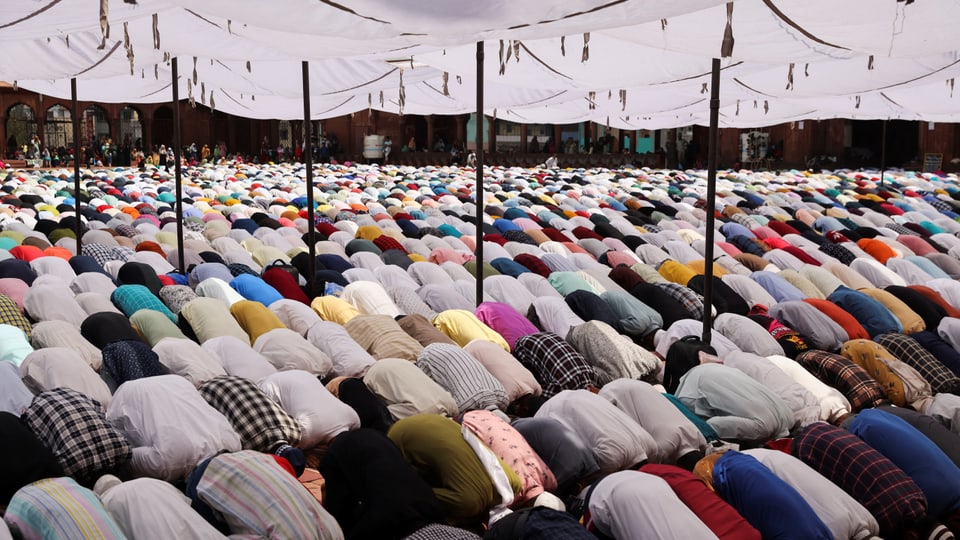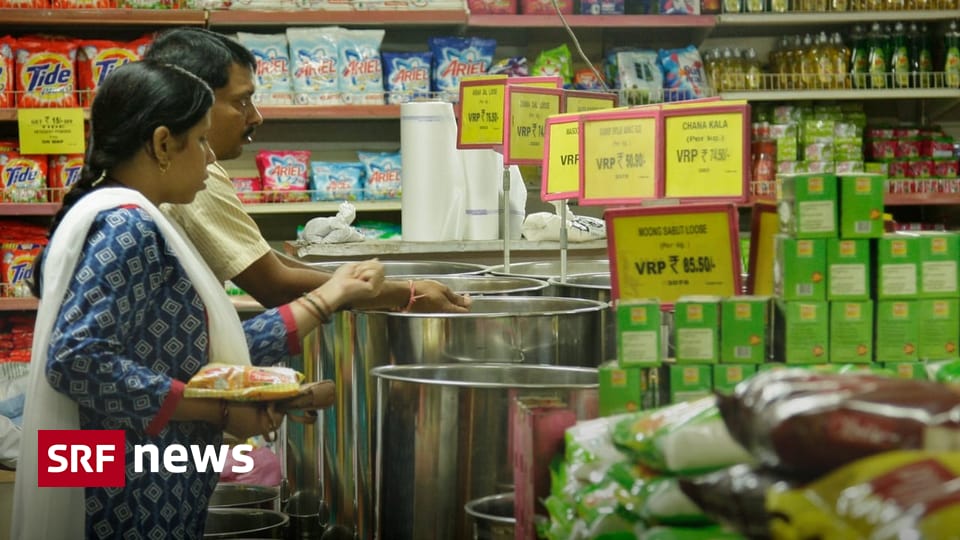The Hindu nationalist government in Uttar Pradesh prohibits the issuance of halal certification. Critics talk about hate speech against Muslims.
Devout Muslims only consume “halal” products. This is the Arabic word that means “permissible.” Therefore, many manufacturers produce products according to Islamic rules and label them accordingly.
legend:
Food and medicine are halal if they are produced according to Islamic rules and are therefore considered pure.
keystone/ap/peter dejong
In Uttar Pradesh, India’s most populous state, all halal foods are now banned. The Hindu nationalist government of Yogi Adityanath decided this a few days ago. The ban applies to the production, storage, distribution and sale of all products in the state. Export products are excluded.
The government justifies the ban by saying that halal certifications have caused confusion about the quality of food. Since 2011, all vegetarian products have received a green point, while non-vegetarian products have received a reddish-brown point. According to the government, that should be enough.
The authorities criticize that the various certifications are a money-making scheme because halal products are booming. For example, halal certifications are found on soap and toothpaste. In addition, there is not only one halal certification authority. This makes it difficult for Indian authorities to maintain an overview.
The opposition also speaks of confusion
The opposition speaks out against the ban. Causes confusion. The opposition wonders how the ban will be implemented. “There have already been raids on supermarkets and fast food chains. They looked for the logo there. The corresponding products should be renamed,” says Natalie Mayroth, a freelance journalist in India.
Critics accuse the prime minister of inciting hatred against the Muslim minority. “It’s very hot air, and a little bit of discomfort for Muslims in India.”

legend:
Products exported to Gulf countries must continue to obtain halal certification.
imago pictures
For many people in India, the lack of a halal symbol makes daily life more difficult. “When it comes to large fast food chains or packaged products, Muslims ask themselves whether the product is halal. ‘Can I eat this? Is this consistent with my beliefs?’ Is it without alcohol? “It could also hurt local businesses and restaurants,” says journalist Mayroth. According to Mayroth, the reaction of the Indian population has been cautious so far. There were no major protests.
Repression against the Muslim minority
The ban on halal certification is just one example of the growing repression against India’s Muslim population. The fact that the ban was imposed in a structurally weak region like Uttar Pradesh is not a coincidence.
“In big cities like Mumbai, for example, people are very busy. Many Muslim women also work as traders there. “There are less conflicts there,” explains Natalie Mayroth. “And there have been frequent clashes in structurally weak areas in the past.” For example For example, residential buildings were introduced for people who do not eat meat.

legend:
Muslims constitute the largest minority in India, numbering about 200 million people.
Reuters/Anushree Fadnavis
The timing of the anti-Muslim propaganda may not be a coincidence either. This tactic is especially used before elections. It’s hard to say how successful this will be, Mayroth says. “It’s probably a tool you’re testing. The ruling party also wants to distance itself a little from the Congress. She is accused of following a policy of appeasing Muslim women.

“Tv specialist. Friendly web geek. Food scholar. Extreme coffee junkie.”






More Stories
Patriot air defense system: Should Switzerland wait longer for Ukraine's sake? -News
Boeing 777 causes delays at Swiss Airport
Hitler Beetle can keep his name